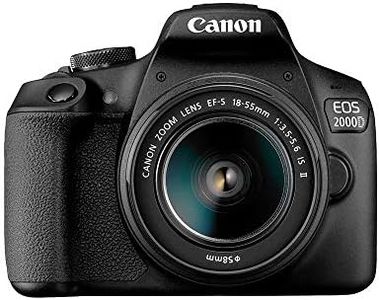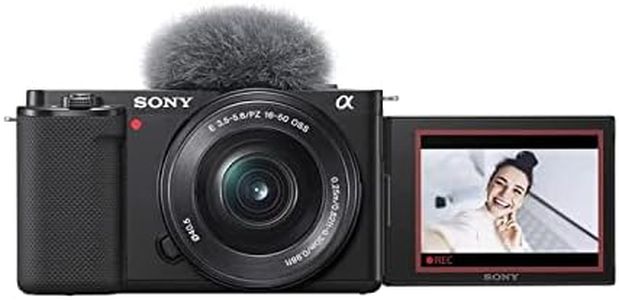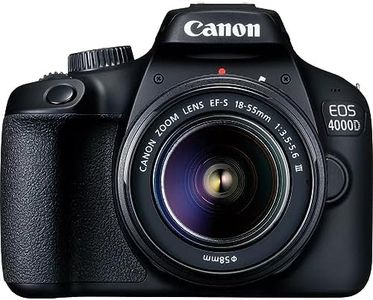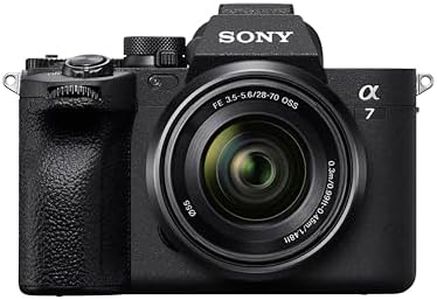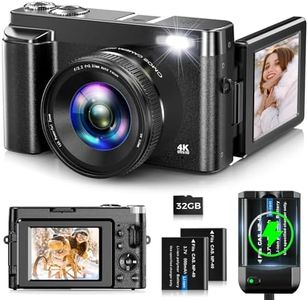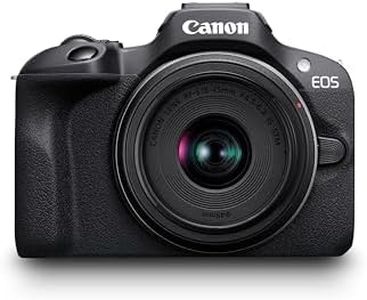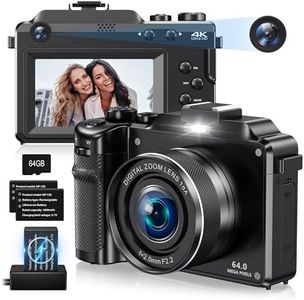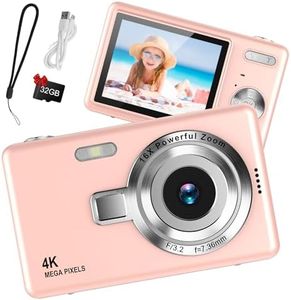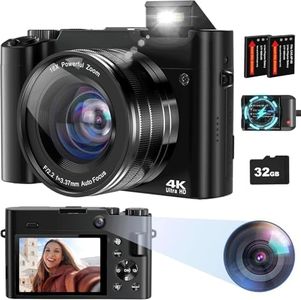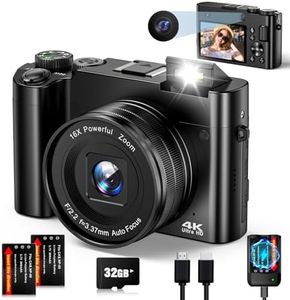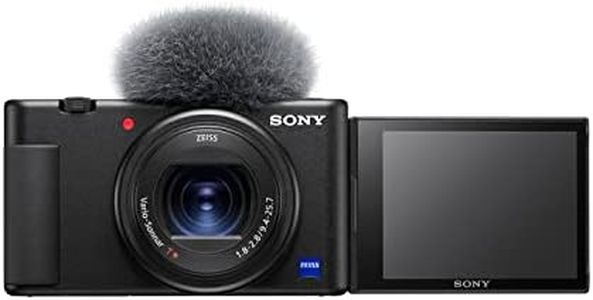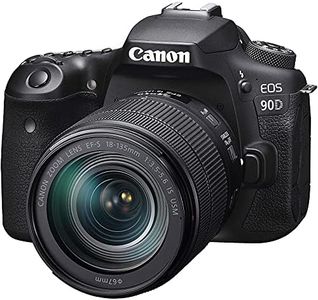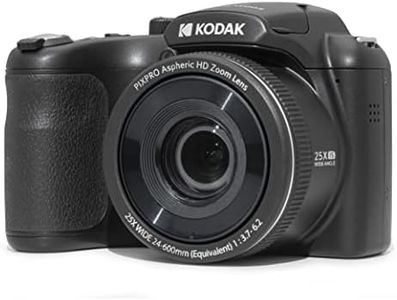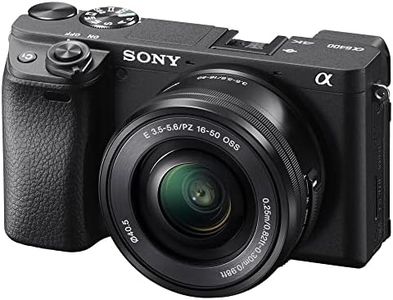10 Best Camera For Beginners 2025 in the UK
Our technology thoroughly searches through the online shopping world, reviewing hundreds of sites. We then process and analyze this information, updating in real-time to bring you the latest top-rated products. This way, you always get the best and most current options available.

Our Top Picks
Winner
Canon EOS 2000D DSLR Camera and EF-S 18-55 mm f/3.5-5.6 IS II Lens - Black
The Canon EOS 2000D DSLR is a solid choice for beginners looking to dive into photography. It features a 24.1 MP APS-C sensor which allows for detailed images, and the included EF-S 18-55mm lens provides a versatile range for various shooting scenarios. One of the camera's strengths is its ease of use, with guided modes and simple controls that help new users get started. The autofocus system with 50 points is reliable for capturing sharp images, though it's not the fastest available, which might be a limitation for action shots.
The camera also offers good video capabilities, supporting Full HD recording, making it a useful tool for both photography and videography. Connectivity options like Wi-Fi make sharing images straightforward, which is a plus for those who like to post photos on social media quickly. However, the camera does lack modern features like 4K video and a touch screen, which could be seen as drawbacks for some.
Battery life is decent, but carrying an extra battery might be necessary for longer shoots. The camera's light weight and compact size enhance its portability, making it convenient for travel. The Canon EOS 2000D provides a strong foundation for beginners, but more advanced users might find the lack of some features limiting.
Sony Alpha ZV-E10L | APS-C Mirrorless interchangable-lens vlog camera with 16-50mm lens
The Sony Alpha ZV-E10L is a versatile choice for beginners, especially those interested in vlogging or content creation. Its 24.2 MP APS-C sensor provides high-quality images and 4K video, which is impressive for an entry-level camera. The included 16-50mm lens offers a decent starting range, but the real appeal lies in its compatibility with over 60 Sony lenses, allowing users to explore various photography styles as they grow more confident.
Ease of use is a strong point of the ZV-E10L, featuring a touch-capable swivel screen that is perfect for filming yourself and intuitive controls that simplify vlogging operations. The camera includes a bokeh switch for creative background blurring and real-time Eye Autofocus, ensuring subjects stay sharp in both photos and videos. Additionally, the Product Showcase mode is a handy feature for those focusing on product review content, quickly adjusting focus between the user and showcased items.
There are some limitations to consider. The optical zoom is relatively modest at 1x, and the maximum aperture of 3.5 isn’t the best for extreme low-light conditions. While the camera is lightweight at 299 grams, making it portable, it's not water-resistant, so caution is needed in adverse weather conditions. On the connectivity front, it supports digital audio interfaces, enabling high-quality sound recording, which is crucial for vloggers. The included microphone and windshield improve audio capture in windy settings. Battery life is typical for mirrorless cameras, but carrying an extra battery might be wise for extended shoots.
The Sony Alpha ZV-E10L offers a solid mix of features ideal for beginners eager to delve into photography and videography, with room to expand their skills over time.
